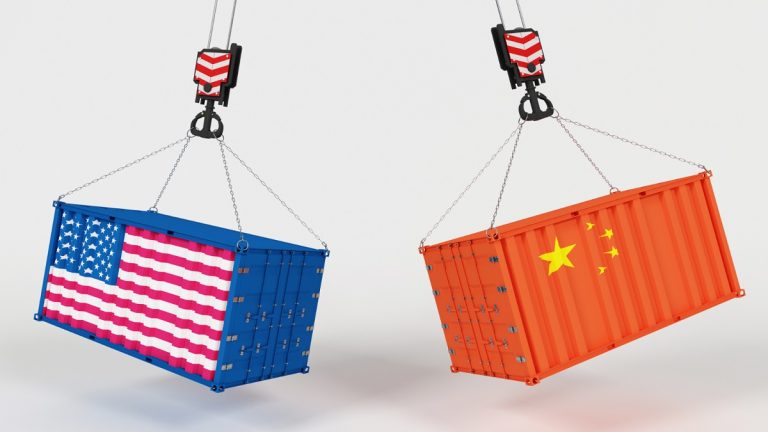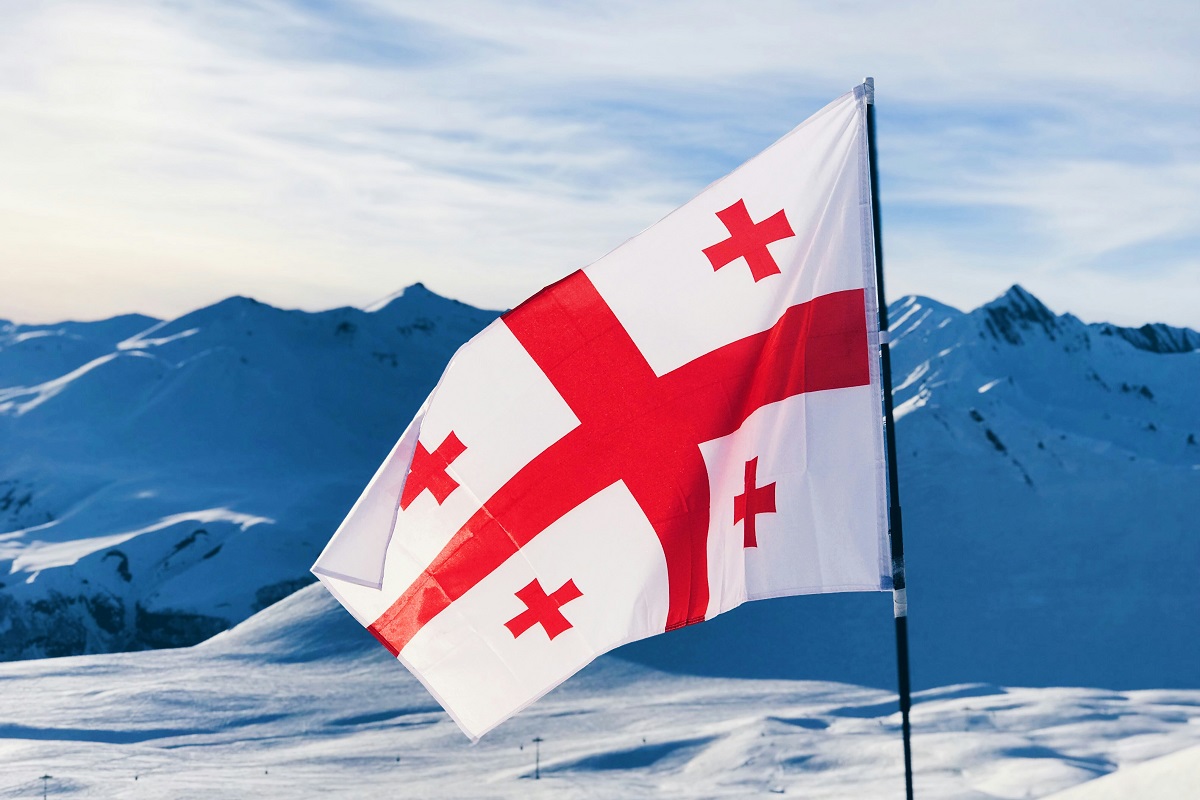
Elections in Georgia as an example of the end of the “era of liberal democracies”
The world is changing rapidly, and there is no place for liberalism and democracy in the idealistic sense. In the framework of global confrontation, these models are replaced by pragmatism, expediency and ideas of order. As a result, in many countries, which have become the arena of struggle for influence of political blocs, a “Frankenstein power” has been established, which meets the interests of the winning side. Read about how these processes have affected Georgia in our article.
A global shift
Liberal democracy has been an excellent model for the relative stability experienced by the entire civilized world since the end of World War II. It has also become the norm in the most backward countries even in Africa and Asia. However, the new conditions of the Cold War 2.0, with the stiff confrontation of political blocs, prioritize “expediency and order” over freedom. Such trends are being adopted not only by traditionally authoritarian China and Russia, but also by the previously democratic U.S. and EU, which is undermining electoral freedom on both sides. Negative changes are already visible in Europe and America, but they are not so noticeable for citizens far from politics who believe in the alternativeness of democracy and their own voice that can determine the development of the country.
But on the periphery, the new rules of the game are already screaming the death of the “old world”. The recent elections in the countries of the former Soviet Union – Georgia and Moldova – have become a detector. These states have become a traditional arena of struggle between Russia and Western countries. Only 10 years ago, the confrontation followed competitive liberal rules, where Moscow, Washington and Brussels supported their partners by legal electoral means. However today, world domination is at stake, so legality has been relegated to the background.
A fracture began to emerge in 2013-2014 in Ukraine but the results of the voting in Georgia and Moldova in 2024 showed that both sides of the confrontation finally began to adhere to the Renaissance principle Cuius regio, eius religio (“whose realm, his religion”). In the XVI century it determined the state religion (Catholicism or Lutheranism) in the German principalities. In the current situation, we can rephrase this principle as “Whose power is the one who will win the elections, no matter for whom the citizens vote”.
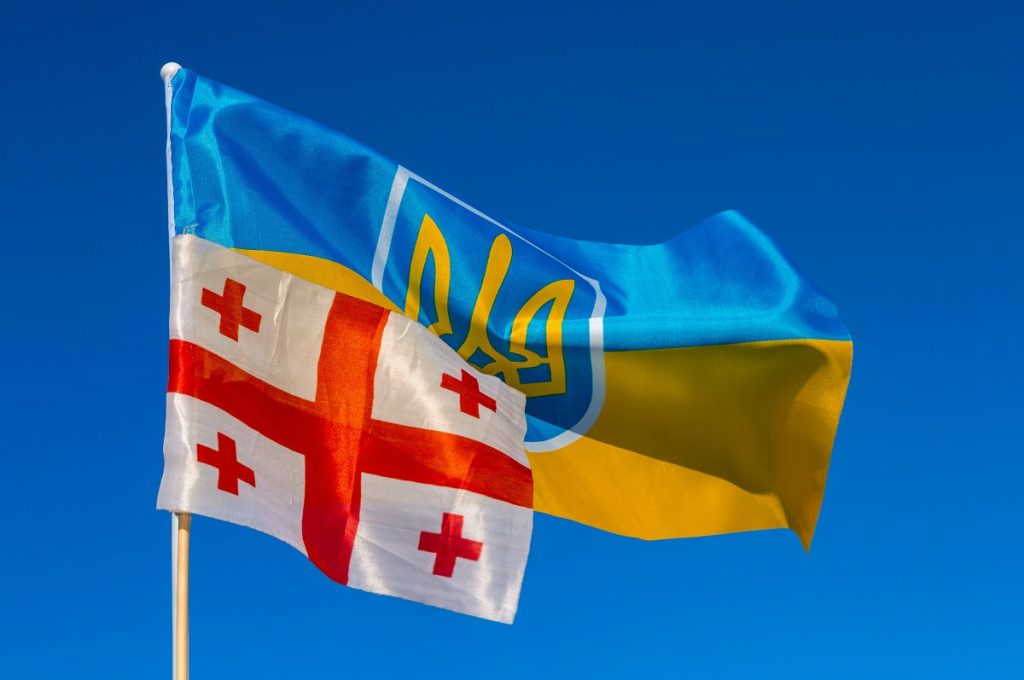
We will consider Moldova and other countries in separate articles, and now we will focus on Georgia. We will also note that we will not make final conclusions about the real outcome of the elections and the scale of falsifications. It is important to understand that if the situation had turned 180 degrees and the opposition was engaged in cheating, the West and other interested parties would still blame “outsiders” for undemocratic behavior, while “their own” would be defined as a standard of popular will. The key aspect here is not public opinion itself, which is always unstable, but the unwillingness of the authorities to address it and accept the fact that their fate can be determined by 2-3% of votes of “unreasonable individuals”, who can still be manipulated by foreign political ill-wishers. This means that everything is determined only by the balance of “shadow” forces, and here we will talk about how it happened in Georgia.
Is Putin behind the Georgian Dream?
Billionaire Bidzina Ivanishvili’s Georgian Dream party came to power in 2012, ousting the United National Movement of Rose Revolution hero Mikheil Saakashvili. Saakashvili fell into the typical trap of liberal populism, when his promises of rapid EU integration, victory over corruption and easy economic prosperity turned out to be a fairy tale. The population preferred this “romanticism” to the government of pragmatists that Ivanishvili represented. Despite the myth that Ivanishvili is an agent of the Kremlin, even if he made his fortune in Russia, his relations with Moscow were always friendly.
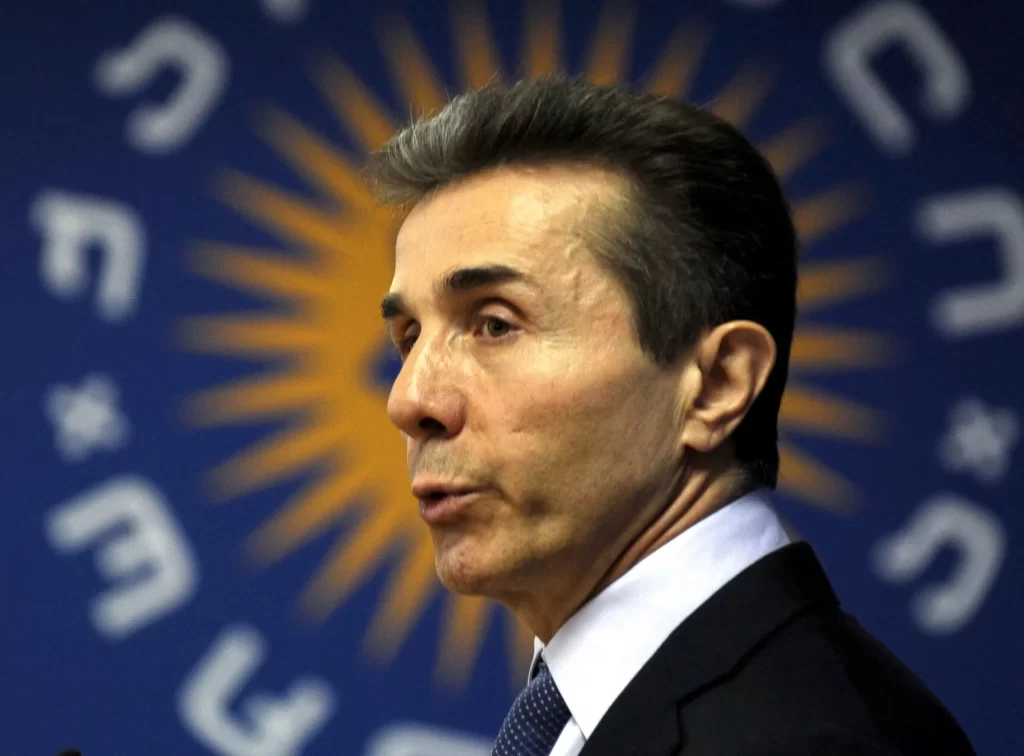
Photo by Washingtonpost
Georgian society at the start of the Dreamers’ rule was going through severe trauma after the war with Russia in 2008. Any pro-Russian rhetoric would have sealed the party’s fate. Reliefs were forced to be extended only to the economic sphere, which allowed to lead the country out of a long crisis.
In those years, this position was treated with understanding in Europe and the United States against the background of Georgia’s undeniable course of integration into the EU and NATO. But everything began to change dramatically after Russia’s invasion of Ukraine in 2022 with full loyalty becoming a prerequisite, above economic pragmatism and rationality. Ivanishvili and his Georgian Dream began to be perceived in Washington and Brussels as “unreliable” and to be replaced.
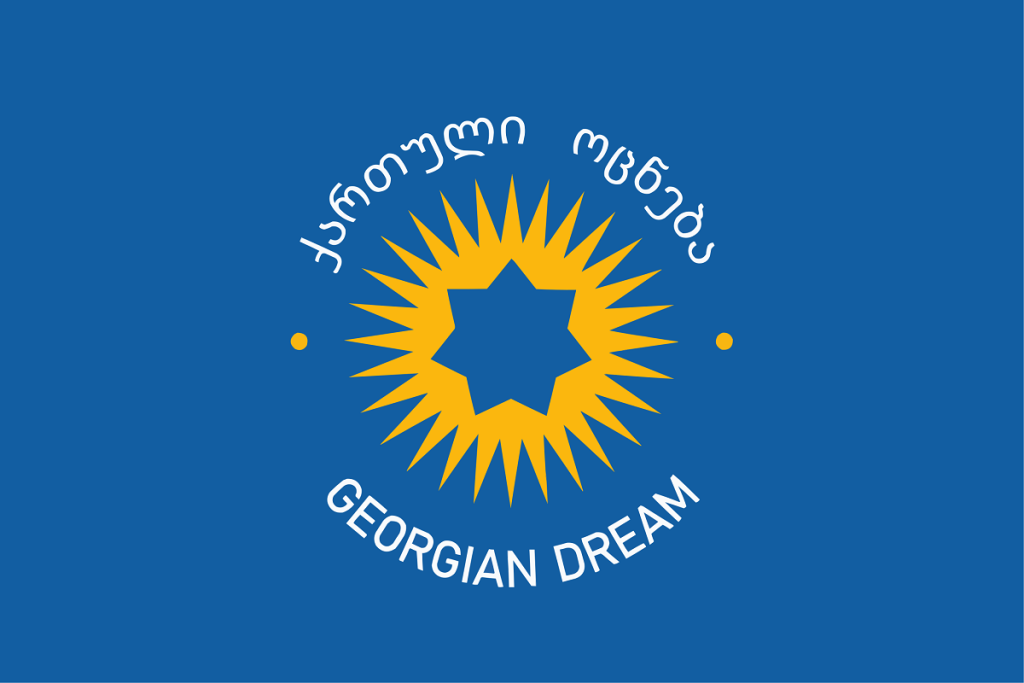
Photo by Haisollokopas / Wikipedia.org
The ideology of the ruling Georgian party was too conservative for the liberal European-American establishment. In addition to his friendship with Putin, Ivanishvili was blamed for his partnership with Donald Trump, which was an even greater sin. And from then on, war was declared on Ivanishvili, which forced him to retaliate, among which was a forced warming with Moscow.
In the economic sphere, the government of Prime Minister Irakli Kobakhidze became one of the beneficiaries of the sanctions war between the West and Russia. Georgia maintained favorable trade relations with Moscow and made its territory available for “parallel exports,” primarily from Turkey, which exceeded $600 million in two years. The Georgian government tried to camouflage these processes by regularly emphasizing EU and NATO integration while maintaining pragmatism in its relations with Russia.
However, regular pressure from the West led to more frequent displays of rapprochement in the public political sphere between Tbilisi and Moscow. It was not for nothing that the “Dreamers” banners, which compared peaceful Georgia to war-torn Ukraine, became the party’s main street propaganda, which would not be such if it were not effective, and this was a clear curtsey toward Moscow. And yet Georgia continued its multi-vector policy, getting closer to Russia on the level of rhetoric and maintaining a priority orientation towards the West. But in practice, the West should have been loyal to Tbilisi in Ivanishvili’s eyes, not radically liberal and dictating political suicide. That is why Russia is ready to make a number of concessions for Tbilisi, which concern the possibility of South Ossetia and Abkhazia returning to Georgia. Obviously, the Georgian Dream policy does not look like the actions of Putin’s agent or puppet.

But despite Moscow’s friendly moves, in September Armenia and Georgia joined international condemnation of Russia’s actions in Ukraine by signing a Council of Europe declaration that supports an arrest warrant for Russian President Vladimir Putin. However, even this was not a reassuring signal to the EU and the U.S. Because what matters more is the nature of Tbilisi’s engagement with Moscow or Beijing, and the fact that Georgia, despite claiming to aspire to EU membership, is acting against the interests of Brussels and its U.S. Democratic Party partners.
The “blind rage” of Brussels and Washington
Kobakhidze expressed the ruling party’s interest in “resetting relations with the U.S. and the EU,” but the EU suspended meetings with Georgian authorities and adjusted the republic’s funding. The reason is the adoption of the laws “On Foreign Agents” and “On the Protection of Family Values and Minors”, which have enraged liberal European officials for disobeying their will and ignoring “faithful ideals”.
In the run-up to the elections, the Georgian government’s conflict with the U.S. and the EU over the foreign agents law, restrictions on LGBT propaganda, harassment of the opposition, and other issues only grew. It was obvious to everyone that the ultimate goal of the West was to overthrow the ruling Georgian Dream party regardless of how the elections would turn out.
The level of confrontation was rising, the Speaker of the Georgian Parliament Shalva Papuashvili stated that the U.S. and Europe through NGOs had raised a “Frankenstein” in Georgia, which threatened the state system and this “monster” was acting against the interests of the citizens. At that time there was a real threat that the EU would not recognize the results of the parliamentary elections and would provoke unrest in the country. The U.S. did not stay on the sidelines. Secretary of State Anthony Blinken accused the Georgian government of “anti-democratic and false statements” incompatible with the country’s standards of membership in the EU and NATO, which was supplemented by numerous sanctions against Georgian officials.
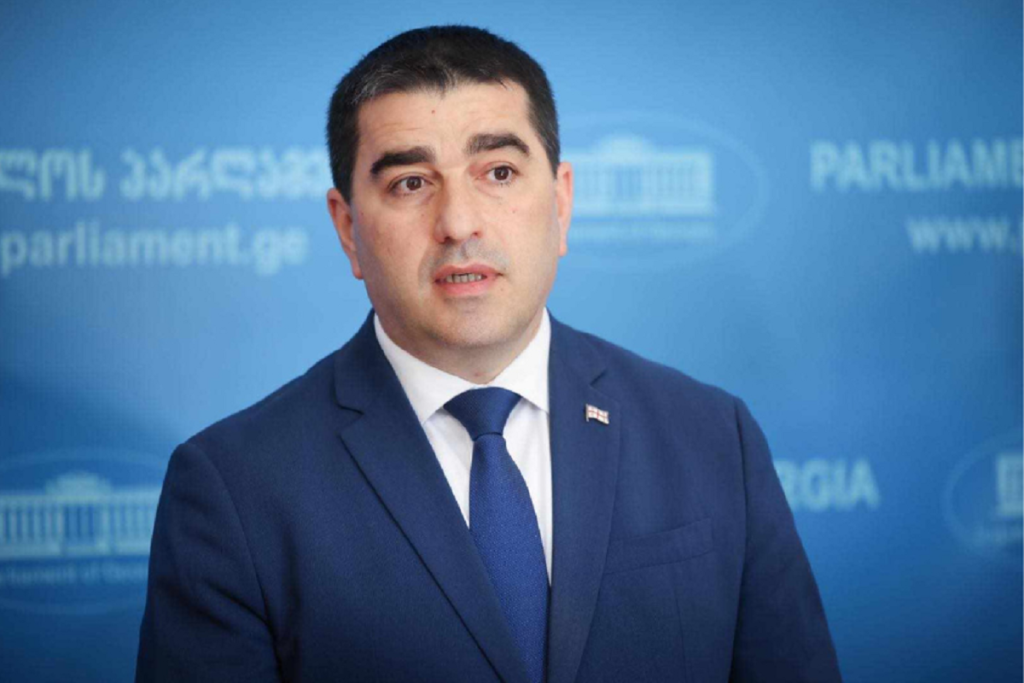
Photo by Parliament of Georgia
The West, dissatisfied with Georgia’s movement “in the wrong direction”, predictably demonstrated to the voters the consequences of Bidzina Ivanishvili’s associates remaining in power. With the help of various sanctions, voters were clearly shown that Georgia’s intention to join the EU without liberal “European” values and NATO without war with Russia and integration with the West is initially unviable, and the country’s path to Europe will be closed with this party in power.
It was difficult to predict the effectiveness of such an EU strategy, as the sociological data about the high electoral support of the Georgian Dream at 60% did not look very relevant. This explains the extreme rigidity and ambiguity of the Georgian authorities’ decisions against the opposition. However, Georgia’s position on maintaining its course was tough, and at the elections the Georgian Dream would try to achieve a constitutional majority in parliament by any means, relying on at least half of the country’s population, and was not planning to follow EU resolutions condemning its policies.
Deadly battle between conservatives and liberals in Georgia as part of the global trend
The confrontation between the authorities and the opposition escalated in Georgia when the election campaign for the parliamentary elections scheduled for October 26 started. The ruling Georgian Dream party insisted on banning the largest opposition party, United National Movement, after the elections and reported that it was preparing provocations on voting day. In response, Georgian President Salome Zourabishvili was about to declare the results of the upcoming parliamentary elections illegitimate and post-election riots seemed inevitable.
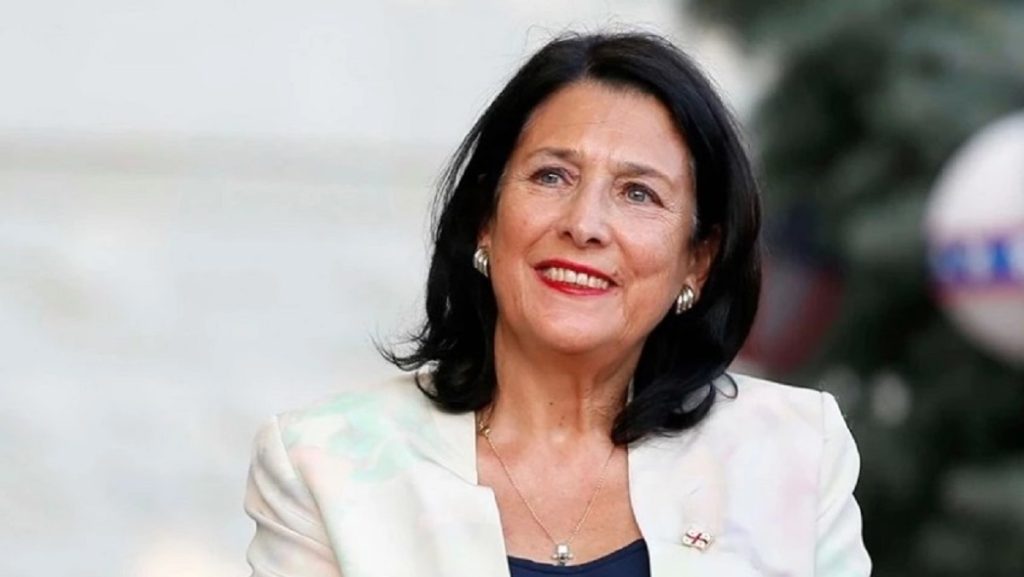
Photo by BM.ge
In order to consolidate its anti-liberal electorate, the Georgian authorities continued their course of conservative reforms and were going to give the Georgian Orthodox Church a special status. At the same time, the Georgian parliament finally passed a bill banning LGBTQ+ propaganda and gender reassignment, and “cleaned up” liberal NGOs. This was very similar to Trump’s plan in the US, which the Democrats hated so much.
“Dreamers” also emphasized that they would only ban NPOs that interfere in the electoral process. This was very similar to the actions of Viktor Orbán in Hungary and Benjamin Netanyahu in Israel, which, by “coincidence”, were also perceived as “anti-democratic” by liberals in the U.S. and EU. The Georgian Dream party, like the above-mentioned leaders, has shown that it is oriented towards the conservative electorate and has consistently pursued an anti-liberal course domestically, challenging the liberal establishment in the EU and the U.S.
With its position, Georgia has consolidated the trend of centrifugal tendencies around the European Union. As recently as 20 years ago, membership in the EU offered so many economic advantages that the countries of the former socialist bloc and the former USSR ignored the disadvantages. But as the years went by, the EU does not have exclusive rights to organize a bearable life. Friendship with Russia, Turkey and China is no less favorable for Georgia economically than with the EU. But in Europe things have taken a slightly different path.
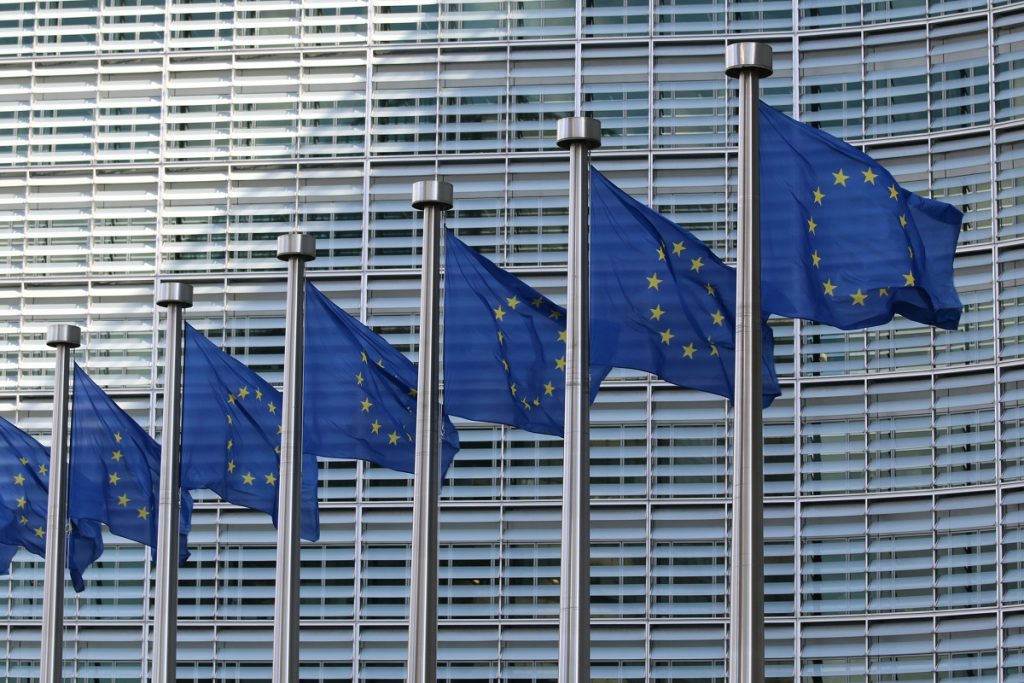
Yes, they can still provide Georgia with a good existence just by the fact of membership. But in exchange it will have to forget about any independence and accept the most degenerate initiatives of Brussels. The turnaround took place in 1992, when the USSR, Warsaw Pact and CMEA collapsed, and the European community, built on voluntary and mutually beneficial economic cooperation, decided to start a transformation, becoming the EU in its current form. This format was open to the entry of Eastern European countries, but stricter in regulation, including interference in the internal politics of member countries. And the imbalance between economics and “diktat” steadily grew, turning the EU’s “soft power” into a profanation. The same happened in the USA. Therefore, the outcome of the confrontation between liberal Western elites with their desires and the Georgian Dream with its capabilities and the support of not 99% but 50% of citizens was predictable.
Georgian Dream gained 53.92% at the end of the elections and retained power, but did not implement its plan of ‘constitutional majority’, which implied a strict ban on the liberal opposition in the country. As we wrote at the beginning of the article, we will not assess the real scale of falsifications on both sides, but we would like to note that they were not critical, and such “anti-democratism” has become habitual in the EU and in the USA.
It is important that the opposition did not recognize the election results, accusing the authorities of falsification and calling for protests. During more than a decade of the Georgian Dream’s rule, protests in Tbilisi have been held repeatedly, including after the elections, but they have failed to shake the Dream’s power. All the actions followed the same scenario: crowded rallies and attacks on government buildings were organized, but the authorities responded by using force to break into government buildings and did not make concessions. Because of ineffectiveness, the protests gradually died down. It seemed that Ivanishvili was preparing to follow the same scenario after the October 26 elections, but the opposition, chronically tired of failures, failed to organize rallies. The law “on foreign agents” also worked. The liberal youth of Tbilisi, inclined to pacifism and incapable of aggressive struggle for their ideas, gave up without external support.
And it was a victory not only for Bidzina Ivanishvili or Russia. The first to congratulate the “Dreamers” on their victory was Viktor Orbán, who also has long suffered from the “terror” of the EU authorities, and it is definitely Donald Trump who is behind him. This very logic of confrontation was confirmed by the fact that in a joint statement, the governments of Canada, Germany, Ireland, Italy, Estonia, Latvia, Lithuania, Poland, Sweden and Ukraine said they would not recognize the results of the elections in Georgia. But their arguments were weak and self-interest was in evidence, so even Salome Zourabishvili herself said she could not provide evidence of electoral fraud or Russian interference in the election process.
But this was of little concern to people who did not care about democracy, and this was the position not only of the “Dreamers” who were accused of this, but also of their opponents. Thus, the U.S. State Department said that the right to investigate election violations in Georgia should be with Americans and Europeans, not with Georgian officials. This made it clear that the outcome of the investigation was a foregone conclusion.
After that, Georgian Prime Minister Irakli Kobakhidze said that the parliamentary elections were held with unprecedented outside interference. At the same time, he added that Georgia excluded the restoration of diplomatic relations with Russia, which was its “patron” according to the U.S. and the EU. And the fact is that for him it was an act of mercantile expediency, within the framework of which he was protecting his power as well as Moscow, Brussels and Washington. An idealistic democracy does not play any role here, and the elections in Georgia became a perfect example of the end of the “era of liberal democracies”. With this in mind, there will be even more such examples in the conditions of “Cold War 2.0”.

